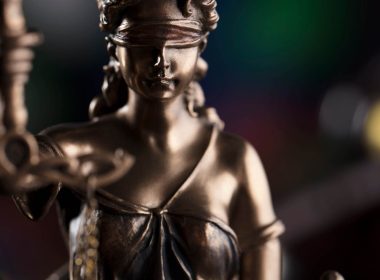Under the Legal Profession Uniform Law (NSW) (Uniform Law), the term “lay associate” has a distinct meaning and it covers persons employed in a law practice who are not an Australian legal practitioner. These persons include employees, agents or consultants who provide services related to legal services of a law practice, and extends to anyone who “shares receipts, revenue or other income arising from the law practice”.
In practice, lay associates of a law practice may work in management, secretarial, financial, human resources, administrative, clerical and other support roles.
What is the meaning of a disqualified person?
Unless approved to be employed as a lay associate, a law practice is prohibited from employing two distinct categories of “disqualified persons” under s121 of the Uniform Law.
The first category of disqualified persons includes a person who is an Australian legal practitioner and has either:
- been removed from the Supreme Court Roll;
- has had their practising certificate suspended or cancelled; or
- has been refused the grant or renewal of a practising certificate.
In other words, any legal practitioner who is struck off, suspended or refused to be issued a practising certificate is a disqualified person.
The second category of disqualified persons includes any person who has been convicted of a serious offence. The meaning of serious offence includes an offence (whether or not the offence is or may be dealt with summarily) that is:
- an indictable offence against a law of the Commonwealth, State or Territory;
- an offence against a law foreign country that would be an indictable offence against a law of the Commonwealth, a State or a Territory if committed in Australia.
The final category is those who have been declared either by the Council of the Law Society or the NSW Civil and Administrative Tribunal to be a disqualified person. A register is maintained on the Law Society website (see below).
Consequences that may arise in the case that an unauthorised lay associate is employed at a law practice
Section 122 of the Uniform Law provides that a legal practitioner who is a disqualified person must not seek to become a lay associate of a law practice unless the person first informs the law practice of the disqualification. Equally, a person who has been convicted of a serious offence must notify the law practice of the conviction. The maximum penalty is 100 penalty units or $11,000.00.
If a law practice knowingly employs an unauthorised disqualified person in contravention of s121 of the Uniform Law, the Council of the Law Society of NSW (Council) may make an application to the NSW Civil and Administrative Tribunal (NCAT) for an order disqualifying the law practice from providing all or specified legal services in NSW for a specified or indefinite period, or an order that it be subject to conditions of practice. Moreover, the prescribed penalty for a contravention of s121 of the Uniform Law is 1oo penalty units or $11,000.00.
The employment of a disqualified person may also give rise to further disciplinary action against an individual legal practitioner including the principal of the law practice.
It is important to note that where a law practice contravenes any provision of the Uniform Law, the principal is taken to have contravened the same provision if they were in a position to influence the conduct of the law practice and failed to take reasonable steps (see eg, s35 of the Uniform Law).
Under s123 of the Uniform Law, a legal practitioner who provides legal services on behalf of a disqualified entity in the capacity of an associate of the entity is capable of constituting unsatisfactory professional conduct or professional misconduct if they ought to have known that the entity is a disqualified entity.
What do I do if I become aware that a person is a disqualified person?
If a principal or legal practitioner associate working in the law practice discovers that a person is a disqualified person, the law practice must immediately take steps to ensure that the person does not perform any further work at the law practice until they are granted approval as a lay associate.
Persons who fall within the first category may make a written application under s121 of the Uniform Law to the Council seeking approval to be a lay associate of a law practice.
Persons who fall within the second category, that is, if they have convicted of a serious offence, is required to make an application to NCAT.
An application for approval should include any relevant matters including:
- the nature and circumstances of the person’s disqualification or conviction;
- the requirements and responsibilities of the arrangement or kind of arrangement under which the person is seeking to be employed or otherwise involved;
- the degree of connection between the person’s disqualification or conviction and the requirements and responsibilities of the arrangement or kind of arrangement.
The nature of the inquiry to be undertaken by the Tribunal was considered in Michael John Charles Caiger (1994) by reference to an application in Re Clayton [1962] SR (NSW) 132. As stated by the Court [in Re Clayton], the restriction was very broad and it involved an enquiry into the fitness of the person who has been convicted of such offence.
The primary principle which the Tribunal must consider is the protection of the public and the onus is on the applicant to show that there is little to no risk to the public. In Caiger and referred to in Hegney at [28], the Tribunal said:
“… Anything, which places or is indeed likely to place any member of the public in a situation of risk, must be avoided. The need to protect the public falls squarely on the shoulders of all legal practitioners and through them this includes their employees. This is a heavy and onerous responsibility cast upon each practitioner and any proposed employer supporting an application of this nature is charged with a responsibility to ensure actively that if such an application is granted the public is put to no risk whatsoever.
This particular limb of consideration is consistent with the duties of the Tribunal in exercising its discretion under the Section. The Tribunal has to make a calculated assessment as to the probability of such risk occurring or not occurring. Indeed, the Tribunal is of the view that it has to be satisfied to a degree beyond the test of satisfaction on the balance of probabilities and into being comfortably satisfied pursuant to the principles enunciated in Briginshaw v. Briginshaw 60 CLR 366. The Tribunal’s view is that the burden of proving comfortable satisfaction lies with the Applicant and the prospective employer.”
How do I check?
Legal practitioners should be aware of these provisions and should seek to properly screen all lay associates in order to avoid inadvertent breaches of the Uniform Law.
The Office of the Legal Services Commissioner is required to keep a publicly available Register of Disciplinary Actionwhich records actions taken against legal practitioners, including their practising certificates.
The Law Society of NSW (Law Society) maintains a Register of Disqualified Persons which records persons who have been disqualified by the making of an order from being employed by a legal practice. Similarly, to check the current practising status of a NSW legal practitioner, go to the Law Society Register of Solicitors for verification. Alternatively, check with solicitor registers maintained by the equivalent authority of other States and Territories.
If in doubt, please contact the Law Society Registry on 9926 0156 or by email.




